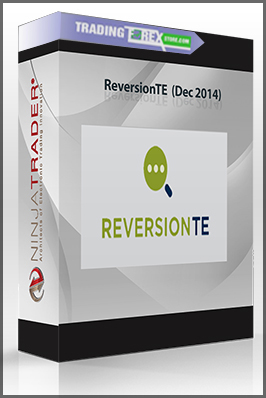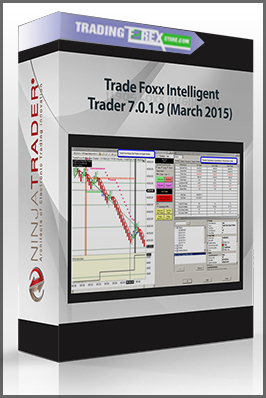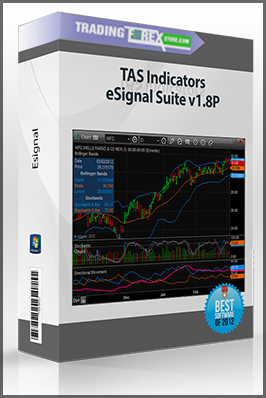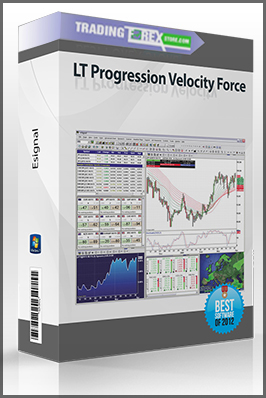How I Trade Growth Stocks In Bull And Bear Markets by Tim Truebenbach
$35.00
- Description
Description
How I Trade Growth Stocks In Bull And Bear Markets by Tim Truebenbach
**More information:
Status:
Sale Page
Get How I Trade Growth Stocks In Bull And Bear Markets at bestoftrader.com
Product Description
Receive In-Depth Training From Hedge Fund Manager Tim Truebenbach
What Strategy Does This Hedge Fund Manager Use To Make Trades Like These?
- …Bought UNTD 3/21/03. Took partial profits for 10% gain in 3 days. Shares still owned up 30% 12 days later.
- …Entered UOPX 3/19/03 for 10% gain in 3 days.
- …On 3/25/03, bought ENDP and took partial profits for 5% gain in 2 hours. Shares still owned up 28% after 9 days.
- …Bought HITK on 3/26/03 and made partial exit for a 5% gain on same day as entry. Shares still owned up 56% after 15 days.
- …Bought GSOF on 3/25/03 and exited the next day for a 10% gain.
Find out how you can learn Tim Truebenbach’s Breakout and Bolt Strategy! Read on…
Dear Fellow Trader,
My name is Tim Truebenbach. I have been trading stocks successfully since 1989. And since 1997, I have managed money professionally for clients throughout the world. Since its inception (bear market included), my money management firm has significantly beat the S&P 500.
In my new training module, How I Trade Growth Stocks In Bull And Bear Markets, I will teach you a strategy that has been instrumental in enabling me to achieve this performance and maintain it during both bull and bear markets. This strategy is called Breakout and Bolt.
What Is Breakout And Bolt?
Breakout and Bolt is a long-only strategy that is designed to buy stocks that rapidly thrust higher during market rallies. The goal of the strategy is to aggressively capture profits of 5% to 10% on partial positions within 1 hour to 3 days after the entry and maximize gains before exiting the remaining shares.
This strategy is designed to work in both bear and bull markets. For you to successfully execute this strategy, there are 10 proprietary rules that I will teach you. These rules enable you to accomplish the following:
- Anticipate strong market rallies during both bear and bull markets.
- Buy growth stocks with the fundamental and technical characteristics of the strongest and fastest gainers during market rallies.
- Buy the stock just as it is beginning to make a strong move during a market rally
- Capture profits early. You’ll be able to exit with 5% to 10% gains on partial positions within 1 hour to 3 days after entry.
- Let the rest of the move unfold to maximize profits on the remaining portion of the trade and then exit.
How Did I Develop Breakout And Bolt?
I developed the strategy after studying the behavior of stocks during bear market rallies. Over and over again, I saw stocks break out, move higher, and then fail to follow-through. Many intermediate-term traders will not touch these stocks and indeed label these as “failed breakouts.” But I observed that these stocks could make 20% gains or more prior to collapse. Why not capture those profits? This is what my strategy is designed to do.
Here Is What I Will Teach You In My Training Module
Section I: How To Be A Buyer During Strong Rallies (In Both Bear And Bull Markets)
The only time that I buy stocks is when the overall market is rallying. In this section, I will teach you the market timing strategy that I have used to participate in every tradable bounce of 10% or more in the stock market over the past 3 years. I have used every one of these rallies to trade the best growth stocks for my clients and my own trading account. Needless to say, this strategy is able to deliver even better performance during a bull market!
Section II: How To Ensure That You Own Stocks In Leading Industry Groups
In this section I will teach you how to identify the top-ranking industry groups. When you do this you will be limiting your search to stocks that will potentially outperform the rest of the market. Not only will I show you my ranking parameters and how to get easy access to the information you need, I will also teach you an early-filtering strategy that allows you to predict future industry group leaders.
Section III: How to Select Stocks That Have The Best Potential For Substantial Gains When The Market Rallies
Next, you will learn how to apply my fundamental and technical criteria for selecting the growth stocks that could potentially make substantial gains during the next market rally.
These are companies whose recent earnings, together with other fundamental performance measures, are displaying rapid upward momentum. Along with that, these stocks also display technical patterns that tell you that they haven’t been noticed by Wall Street institutions yet.
My criteria will enable you to put these stocks on your hit list well before Wall Street money floods in and drives the stock dramatically higher.
Section IV: How To Enter Growth Stocks And Take The Profit That The Market Gives You
In this section, you will apply everything I’ve taught you in Sections I, II and III about how to buy the right stocks in the best industry groups during times that the market is rallying strongly. I will show you what specific price and volume action you will see in the few days before a stock makes a sudden thrust out of a trading range. Knowing this in advance will allow you to immediately seize upon any opportunities that occur. Then I will teach you the breakout action that tells you to buy. Once you’re in, I will teach you how lock in a 5% to 10% gain on a portion of your shares within the first 3 days of the trade. Then you will learn how to maximize the gains from the remain portion of the trade.
Section V: Mastering Breakout And Bolt Through Real-World Trading Simulations
Finally, I will take you bar-by-bar through 20 actual trades that I have done for my clients and my own trading account. You will not only get a chance to see how robust the strategy is in different trading environments, but you will also hone and perfect your skills in executing each of the 10 Rules of my Breakout and Bolt Strategy. With each simulation you will have opportunity to sharpen your proficiency by applying the knowledge I have taught you in the preceding sections.
As each new bar appears in these simulations, you will see how my trading rules come together in the days prior to an entry. By following those rules, you will make decisions to enter a trade, set your initial stop, and usually within a 3-day period, potentially take quick action in locking in 5% and then 10% gains. Once you have done this, I will drill you on how to maximize your potential gains on the rest of the move that the stock makes.
My goal is that by reviewing this strategy as needed and applying it over and over again through my simulations, you will be able to successfully apply it to your own trading!
What Kind Of Edge Does My Breakout And Bolt Strategy Give You?
- You can buy stocks that have both fundamental and technical reasons for rallying powerfully. Many traders focus exclusively on technical analysis to find trading opportunities. In Breakout and Bolt, we find stocks with the potential for greater gains by combining technical analysis with strong fundamentals. How do we do this? We require that every stock we buy have earnings profiles that will potentially attract a flood of buying from Wall Street Institutions once a breakout occurs.
- If you are an intermediate-term trader, you will no longer have to sit on the sidelines waiting for the next bull market. Breakout and Bolt is a hybrid strategy in which you use intermediate-term rules to buy a stock…but once you’ve bought it, you manage the trade as though you are short-term trader. It is essentially a way for you to take the profit the market gives you during “failed breakouts” that occur during bear markets.
- You will be able to let profits run while at the same time locking in early gains. The goal of myBreakout and Bolt strategy is to let you take money off the table so that you will be in a profitable trade within 1 to 3 days after entry. But you will be holding onto a piece of the trade which will benefit from any further rallying that the stock does. In my experience, these gains can be on the order of 20% or more.
- You can apply Breakout and Bolt in both bull and bear markets. In bear markets, rallies are brief so the trade management rules pull money out of the trade faster. However, during a bull market, you will be able to make minor changes to the trade management rules so that you’ll wait for larger gains to accumulate before taking profits.
- You can anticipate the most powerful bear market rallies and trade them. I will teach you how to use an indicator which has enabled me to participate in every tradable bounce of 10% or more that the market has made since the bear market began in 2000. This will enable you to limit your stock purchases to those times when the market is moving strongly higher.
- You can trade with reduced stress. When you sell off parts of your position for 5% and 10% gains during the first 3 days of a trade and then move your stop up to lock in those gains, you have a powerful psychological advantage. You will be able to more calmly allow the final piece of your trade to play out for maximum gains, knowing that you have already pocketed money off the trade.
and much, much more!
Stock trading course: Learn about Stock trading
A stock trader or equity trader or share trader is a person or company involved in trading equity securities.
Stock traders may be an agent, hedger, arbitrageur, speculator, stockbroker.
Such equity trading in large publicly traded companies may be through a stock exchange.
Stock shares in smaller public companies may be bought and sold in over-the-counter (OTC) markets.
Stock traders can trade on their own account, called proprietary trading, or through an agent authorized to buy and sell on the owner’s behalf.
Trading through an agent is usually through a stockbroker. Agents are paid a commission for performing the trade.
Major stock exchanges have market makers who help limit price variation (volatility) by buying and selling a particular company’s shares on their own behalf and also on behalf of other clients.















